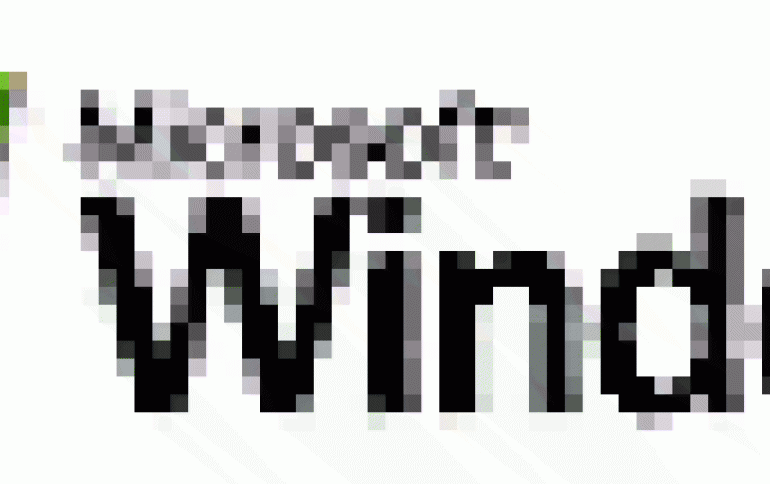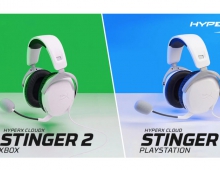
PC makers to offer full Windows version in Europe
The world's two largest PC makers said on Friday that they expect mostly to sell machines with full version of Windows in Europe despite a European anti-trust order forcing Microsoft to offer a stripped-down version of its flagship operating system.
After weeks of legal wrangling, the world's largest software maker agreed earlier this week to sell a version of its operating system called "Windows XP Home Edition N" without software for playing music and videos. Microsoft's Windows runs on more than nine out 10 PCs in the world.
The European Union's top regulatory body ruled last year that Microsoft had abused its monopoly status and ordered the Redmond, Washington-based company to pay a $650 million fine and offer an alternate version of Windows in order to encourage more competition from audiovisual software programs from RealNetworks and Apple Computer.
But Dell, the world's largest PC maker, said on Friday that it had no plans to sell PCs in Europe without Microsoft's audiovisual software, called Windows Media Player.
"The current offering [version of Windows] satisfies our requirements," said Venancio Figueroa, a spokesman of Dell, based in Austin, Texas. "We will continue to monitor the market to see what demand is like."
Palo Alto, California-based HP's VP for Europe, Ingo Juraske, told The Wall Street Journal Europe that the world's number two PC maker will offer both versions of Windows in Europe, but doesn't expect many customers to opt for "Windows XP Home Edition N".
The vast majority of Windows sales are made when hardware makers sell a PC running the operating system, rather than directly from retail store shelves.
"It goes back to the market reality," said Pacific Crest Securities analyst Brendan Barnicle.
Barnicle said the larger PC makers would have a hard time selling a version of Windows without Windows Media Player, since it is already the most widely-used proprietary format for recording, playing and exchanging audiovisual content.
Microsoft had no comment on Dell and HP's plans, saying it doesn't get involved in such decisions.
"Decisions on if and when they sell [Windows XP Home Edition N] is entirely up to each of the computer manufacturers," said Microsoft spokesman Jim Desler.
Microsoft has said that it will offer the alternative version of Windows for the same price, which could become a major sticking point with the European Commission if it finds that it goes against the spirit of competition, analysts said.
Seattle-based RealNetworks, a vocal supporter of the European Commission's case against Microsoft, did not say whether it was in talks with hardware makers to offer its own Real player as an alternative.
"RealNetworks strongly supports the European Commission's efforts to require Microsoft to release a fully functioning unbundled operating system and to take all appropriate steps to ensure the effectiveness of its historic decision," Greg Chiemingo, RealNetworks' VP of communications, said in an e-mailed statement.
Microsoft originally had proposed that the alternate version of Windows be called "Windows XP Reduced Media Edition", but European regulators shot down that proposal. Microsoft will also have to share technical information with rival makers of software for servers, or networked computers that store data, crunch numbers and serve up Web pages.
The European Union's top regulatory body ruled last year that Microsoft had abused its monopoly status and ordered the Redmond, Washington-based company to pay a $650 million fine and offer an alternate version of Windows in order to encourage more competition from audiovisual software programs from RealNetworks and Apple Computer.
But Dell, the world's largest PC maker, said on Friday that it had no plans to sell PCs in Europe without Microsoft's audiovisual software, called Windows Media Player.
"The current offering [version of Windows] satisfies our requirements," said Venancio Figueroa, a spokesman of Dell, based in Austin, Texas. "We will continue to monitor the market to see what demand is like."
Palo Alto, California-based HP's VP for Europe, Ingo Juraske, told The Wall Street Journal Europe that the world's number two PC maker will offer both versions of Windows in Europe, but doesn't expect many customers to opt for "Windows XP Home Edition N".
The vast majority of Windows sales are made when hardware makers sell a PC running the operating system, rather than directly from retail store shelves.
"It goes back to the market reality," said Pacific Crest Securities analyst Brendan Barnicle.
Barnicle said the larger PC makers would have a hard time selling a version of Windows without Windows Media Player, since it is already the most widely-used proprietary format for recording, playing and exchanging audiovisual content.
Microsoft had no comment on Dell and HP's plans, saying it doesn't get involved in such decisions.
"Decisions on if and when they sell [Windows XP Home Edition N] is entirely up to each of the computer manufacturers," said Microsoft spokesman Jim Desler.
Microsoft has said that it will offer the alternative version of Windows for the same price, which could become a major sticking point with the European Commission if it finds that it goes against the spirit of competition, analysts said.
Seattle-based RealNetworks, a vocal supporter of the European Commission's case against Microsoft, did not say whether it was in talks with hardware makers to offer its own Real player as an alternative.
"RealNetworks strongly supports the European Commission's efforts to require Microsoft to release a fully functioning unbundled operating system and to take all appropriate steps to ensure the effectiveness of its historic decision," Greg Chiemingo, RealNetworks' VP of communications, said in an e-mailed statement.
Microsoft originally had proposed that the alternate version of Windows be called "Windows XP Reduced Media Edition", but European regulators shot down that proposal. Microsoft will also have to share technical information with rival makers of software for servers, or networked computers that store data, crunch numbers and serve up Web pages.





















